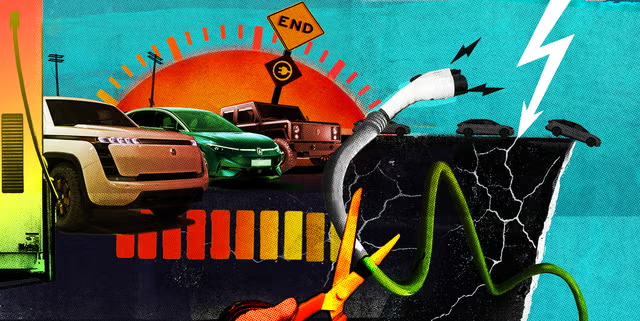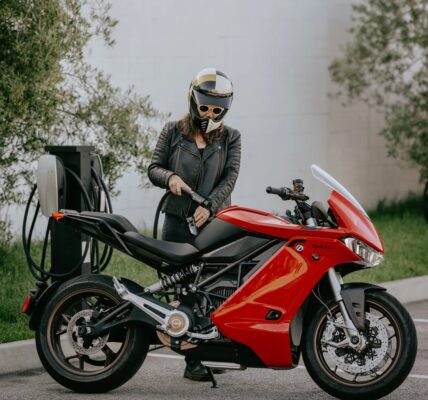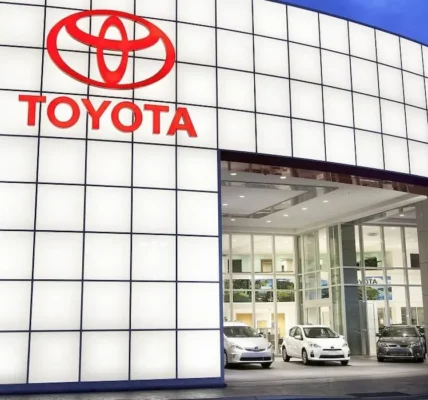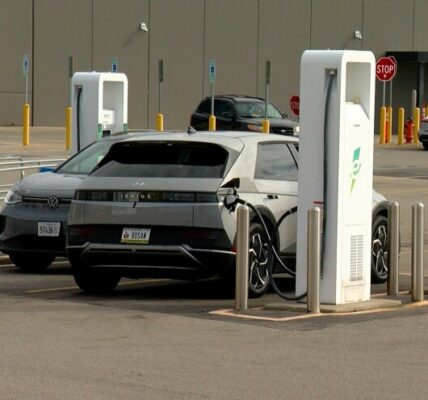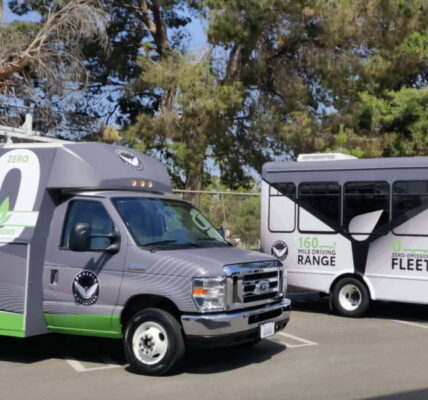America’s Lost EVs: 11 Promised Electric Vehicles That Never, Or Just Barely, Made It To U.S. Streets
The march toward an all-electric future doesn’t happen in a straight line. Automakers announce flashy new vehicles, then delay them, tweak them, and sometimes even cancel them outright. Earlier this month, in fact, Maserati chose the total cancellation path for the electric MC20 Folgore. But that made us wonder: what other EVs have carmakers announced for the U.S. market, only to later renege on their plans before — or shortly after — going on sale?
It’s a curious trend as of the last few years — and the reasons behind axing plans to sell a car before it was introduced aren’t all the same. In Maserati’s case, the company says supercar buyers are much more keen to own a gasoline-powered version than they are an EV. Therefore, the MC20 with the twin-turbo V6 isn’t going anywhere, but the electric Folgore that promised a tri-motor 700-horsepower powertrain is never going to happen.
But what about the others?
Bollinger B1 and B2
Bollinger once had its eyes on selling both an electric pickup and SUV to consumers with the B1 and B2. The EV startup even took deposits for the vehicles, before abruptly postponing those projects in favor of developing a vehicle for commercial use. Those commercial vehicle plans have yet to come to fruition, and the B1 and B2 are starting to look like distant, never-to-be-made memories. They were boxy, had very few features, and were built to appeal to someone wanting a back-to-basics utility vehicle. That wasn’t exactly consistent with the approximately $125,000 price.
Canoo Vehicles
Canoo revealed all sorts of vehicles, and even sold some of them to commercial and government buyers. That said, like some of these other EV startups, delivery numbers were in the double digits. On top of that disappointment, the company filed for bankruptcy in January 2025. That just about ends the company’s dream of bringing funky electric vans (and even a pickup) to the masses. The cab-forward, futuristic design of Canoo’s vehicles grabbed a lot of attention and promise, but none of its models (Lifestyle Vehicle, MPDV, and pickup) will see mass production.
Faraday Future FF 91
Yeah, so … Faraday is technically still in the business of making cars, but the number of cars sold so far remains in the double digits, with no foreseeable uptick on the horizon. Faraday Future recently suggested it could release a vehicle in the $20,000–$50,000 range by the end of 2025, but we’ll believe those plans when we see them. The company’s sole product so far, the FF 91, launched with 1050 horsepower and a huge battery good for about 380 miles of range; it also cost $309,000. We’ll see what the future holds for Faraday, but the ride for the FF 91 has been as choppy as can be thus far.
Ford 3-Row Electric SUV
Ford never revealed its electric three-row SUV in the flesh, but it made a lot of noise talking about it — before cancelling the project last year. The vehicle was expected to be similar to a Ford Expedition in size, and it was even rumored to spawn a Lincoln variant, effectively killing two birds with one stone. This about-face was more surprising to hear about than others, considering the large SUV space is exactly the type of high-margin zone many automakers are targeting with EVs. Instead of a fully-electric model, though, Ford says it’s replacing the project with a new three-row hybrid.
Jaguar XJ EV
This one’s relatively old news by now, but Jaguar had an EV sedan seemingly on the precipice of being revealed back in 2021 … until it was canned in deference to a new direction envisioned for the company. Since then, we’ve seen the new path forward in the form of Jaguar’s Type 00 Concept, and we can confidently say it’s nothing like the leaked image of the electric XJ Jag was working on beforehand.
Lordstown Endurance
Lordstown did indeed manufacture and ship the Endurance pickup … but only in double-digit numbers. In 2023, Lordstown filed for Chapter 11 bankruptcy, and there have been no new trucks since. The Endurance was meant to be a real work truck with a simple design and reasonable price; it featured a special hub-motor system and a combined 440 horsepower. Lordstown made it further than lots of EV startups by manufacturing a number of production vehicles, but its impact on the industry was ultimately but a blip.
Mercedes-Benz EQC
Here’s another blast from the past: the Mercedes-Benz EQC. This electric SUV was revealed back in 2016 and strung along as a possible model available for sale in the U.S. for years, but Mercedes ultimately decided to not launch it here. Sales went on in other markets for a short while, though, before it was ultimately discontinued in 2023. Why’d it never go on sale here in the U.S.? Mercedes said that a “comprehensive review of market developments” is why it never reached our shores.
Nissan Small Electric SUV
Nissan announced big plans for EV expansion here in the U.S. back in 2022, but one of those small electric vehicle it said it had in the works is dead before arrival. This derailment of a previously-announced EV went down in a similar manner as Ford’s SUV cancellation, except Nissan reportedly still plans on selling the EV in other markets outside the U.S. It was meant to be an electric offering in the same size class as the Kicks — so larger than a Leaf, but smaller than the Ariya.
Tesla Roadster
Do we even need to explain this one? Elon Musk revealed the next-gen Tesla Roadster to the world in 2017 and took huge deposits from potential customers. We’re approaching a decade of waiting at this point, and the Roadster is still no more of a reality today than it was in 2017. Tesla missed its supposed 2021 launch date, and while the Roadster is still technically listed on the company’s official website, there is no revised launch schedule to speak of. Does it really exist? For now, we’re going with no until Tesla proves otherwise.
Volkswagen ID.7
The Volkswagen ID.7 was supposed to be America’s premium VW sedan, effectively filling the space vacated by the Passat and Arteon. Now, there will be no ID.7 in the U.S. at all. Volkswagen didn’t kill this big sedan for the whole world, though, as the ID.7 is on sale in other regions in both sedan and wagon forms. The reason it’s not here? VW cites the challenging EV climate here in the U.S. (We suspect it has something to do with dwindling sedan sales, too.) Other VW EVs will carry forward like the ID.4 and ID.Buzz, but sedan loyalists searching out an EV won’t have a Volkswagen option in the States anytime soon.


